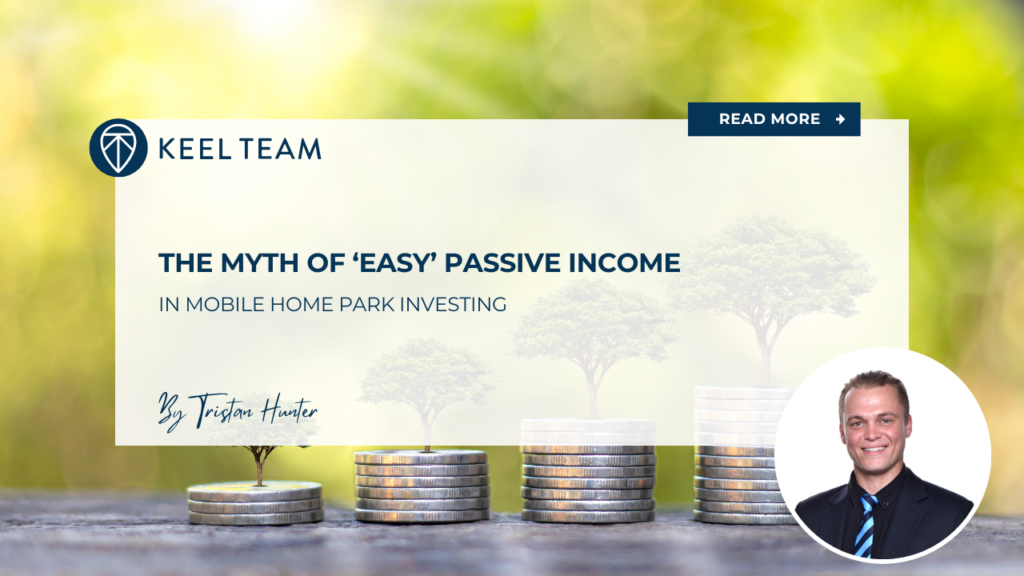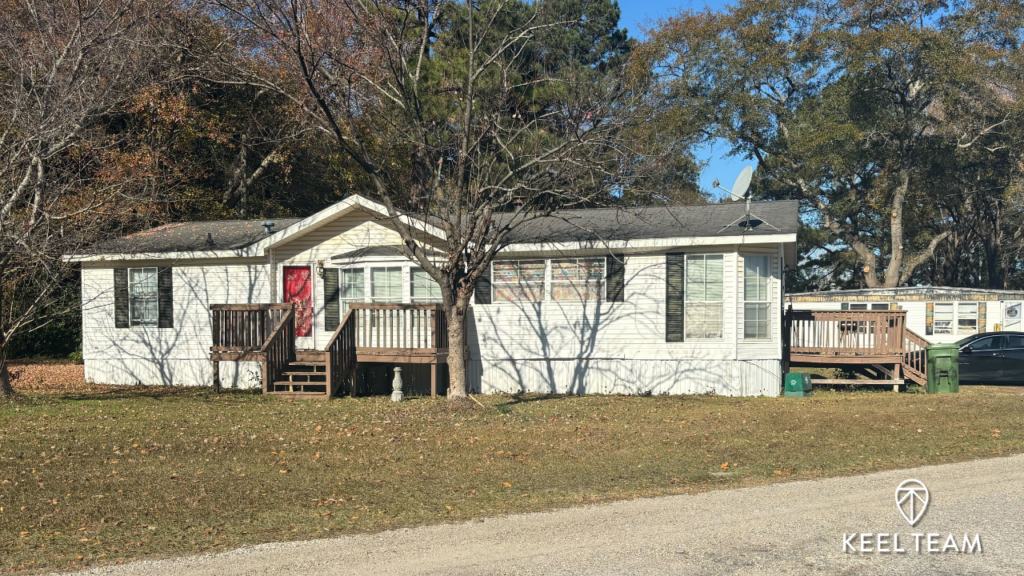The Myth of ‘Easy’ Passive Income in Mobile Home Park Investing
-
 Tristan Hunter - Investor Relations
Tristan Hunter - Investor Relations

Investing in a mobile home park often sounds like an effortless way to generate passive income. Many assume that once tenants move in, lot rent rolls in without much effort. However, managing a mobile home park requires more involvement than most investors anticipate. While mobile home parks can offer steady return potential, they are not as hands-off as some may claim.
The Reality of Mobile Home Park Management
Many investors believe that owning a mobile home park means simply collecting lot rent every month. However, there are several responsibilities that come with ownership. From maintaining infrastructure to handling tenant relations, investors need to stay engaged to ensure the community remains profitable and well-maintained.
Unlike other real estate investments, mobile home parks often require an approach that balances financial oversight and property management. While tenants may own their homes, the land and shared amenities remain the responsibility of the investor. That means upkeep, repairs, and even legal compliance all fall on the owner’s shoulders.
Download our FREE eBook on the Top 10 things to know BEFORE investing PASSIVELY in mobile home parks!
The Hidden Responsibilities of a Mobile Home Park Owner
Owning a mobile home park usually involves much more than just cashing rent checks. Several tasks require ongoing attention, including:
1. Infrastructure Maintenance
Mobile home parks depend on essential services such as water, sewer, and electricity. If these systems fail, it directly impacts the entire community. Regular maintenance and inspections are necessary to prevent costly emergencies. Investors should also budget for future repairs and upgrades, especially in older mobile home parks.
2. Tenant Management
While mobile home parks attract long-term tenants, managing those relationships is typically key to keeping occupancy rates high. Investors often handle lease agreements, enforce community rules, and address disputes. Strong tenant relations can prevent vacancies and reduce turnover, but this requires interpersonal skills, ongoing communication, and problem-solving.
3. Local Compliance and Regulations
Mobile home park investors should comply with zoning laws, health codes, and landlord-tenant regulations. Ignoring these legal obligations can result in fines or lawsuits. Investors may need to work with attorneys or property managers to ensure they meet all local requirements.
4. Property Upkeep and Aesthetics
A well-maintained mobile home park has the potential to attract better tenants and increase property value in return. That means managing landscaping, road maintenance, and common areas. Poor upkeep can lead to declining occupancy rates and reduced income as a result.
5. Rent Collections and Financial Management
While lot rent provides a stable revenue stream, investors should still track payments, enforce late fees, and manage operating expenses. Some tenants may struggle with payments, requiring a structured process for handling delinquencies. Additionally, investors should consider planning for property taxes, insurance, and unexpected costs.

How Mobile Home Park Investors Can Optimize Their Approach
Investors can reduce the burden of mobile home park management by implementing strategic processes. Some effective approaches include:
1. Hiring a Property Manager
For investors who prefer a hands-off approach, hiring a property manager can handle day-to-day responsibilities. A good property manager helps ensure that rent collection, property maintenance, and tenant communication run smoothly. However, this comes at a cost, which can reduce overall profit margins.
2. Implementing Efficient Systems
Using software to automate rent collection and maintenance requests can streamline operations. Many mobile home park investors utilize property management platforms to track expenses, manage leases, and communicate with tenants more effectively.
3. Conducting Routine Inspections
Proactive inspections help investors identify potential issues before they become costly problems. Regularly assessing roads, utility connections, and common areas can help ensure that the property remains in good condition.
4. Establishing Clear Rules and Policies
A well-managed mobile home park usually has clear guidelines for tenants. Enforcing rules regarding lot upkeep, pet policies, and noise levels can help maintain a peaceful and attractive community. Clear expectations also typically reduce disputes and misunderstandings.
5. Networking with Other Mobile Home Park Owners
Learning from other mobile home park investors can provide valuable insights. Industry groups, online forums, and real estate networks allow investors to exchange tips, discuss challenges, and explore strategies for improving their mobile home park operations.
The Bottom Line: Mobile Home Parks Require Active Involvement
While mobile home parks have the potential to generate steady income, they are not a purely passive investment. Successful investors usually remain involved in maintaining infrastructure, managing tenants, and ensuring compliance with local regulations. Those who approach mobile home park investing with realistic expectations and a proactive strategy are more likely to see long-term success. Good luck!
Are you looking for MORE information? Book a 1-on-1 consultation with Andrew Keel to discuss:
- A mobile home park deal review
- Due diligence questions
- How to raise capital from investors
- Mistakes to avoid, and more!
Disclaimer:
The information provided is for informational purposes only and is not investment advice or a guarantee of any kind. We do not guarantee profitability. Make investment decisions based on your research and consult registered financial and legal professionals. We are not registered financial or legal professionals and do not provide personalized investment recommendations.

Tristan Hunter - Investor Relations
View The Previous or Next Post
Subscribe Below 👇





